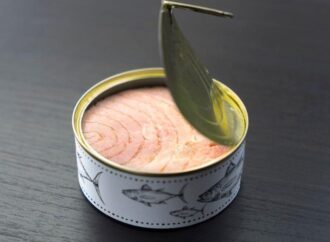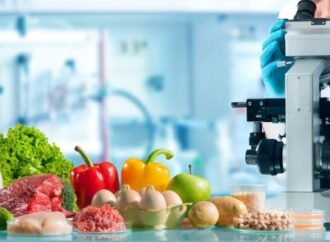Ethylene Gas in the food industry
- A to Z, Food Safety, General, New Technology
- May 25, 2023
 Food Manifest
Food Manifest 
Key Development Researchers at the Indian Institute of Technology (BHU), Varanasi, have developed a state-of-the-art, dual-mode electrochemical sensor that can quickly detect Enrofloxacin, a commonly used antibiotic in the livestock industry. The innovation aims to improve food safety and tackle antimicrobial resistance. The team integrated magnetic molecularly imprinted polymers (MMIPs) with electrochemical detection techniques to
READ MORE
Curing agents play a key role in preserving meat and enhancing its flavour, colour, and texture. When we enjoy foods like bacon, ham, or sausages, we often overlook the process that keeps them safe and tasty—curing. This age-old method uses specific ingredients, called curing agents, to prevent spoilage and stop harmful bacteria from growing. While
READ MORE
The global food processing industry depends heavily on synthetic plastics like low-density polyethene (LDPE), high-density polyethene (HDPE), and polystyrene (PS) for food packaging. While these petroleum-based materials offer strength and flexibility, their widespread use contributes to plastic waste, raising environmental and health concerns due to microplastics and nanoplastics. Addressing this challenge, researchers at the National
READ MORE
Overview Researchers from NIT Rourkela and the University of the Philippines Los Baños have developed an IoT-enabled smart colourimeter to monitor ingredient quality in processed foods. This device enables real-time tracking of colour and temperature variations, making it particularly valuable for analyzing oleogels and fat alternatives in the food industry. How the Smart Colourimeter Works
READ MORE
Report Scientists at Chalmers University of Technology in Sweden have developed a novel packaging method that lowers mercury levels in canned tuna by 35%, addressing a major health concern associated with consuming the fish. The research team created an active packaging system that utilizes a water-based cysteine solution to interact with the fish and reduce
READ MORE
Overview Scientists at the Birla Institute of Technology and Science (BITS) Pilani, Hyderabad, have developed a portable gadget that swiftly detects pesticide residues on fruits, vegetables, and water. This innovation eliminates the need for the traditional, time-consuming process of converting produce into juice for testing. Affordable IoT-Enabled Pesticide Testing The compact microfluidic device identifies organophosphorus
READ MORE